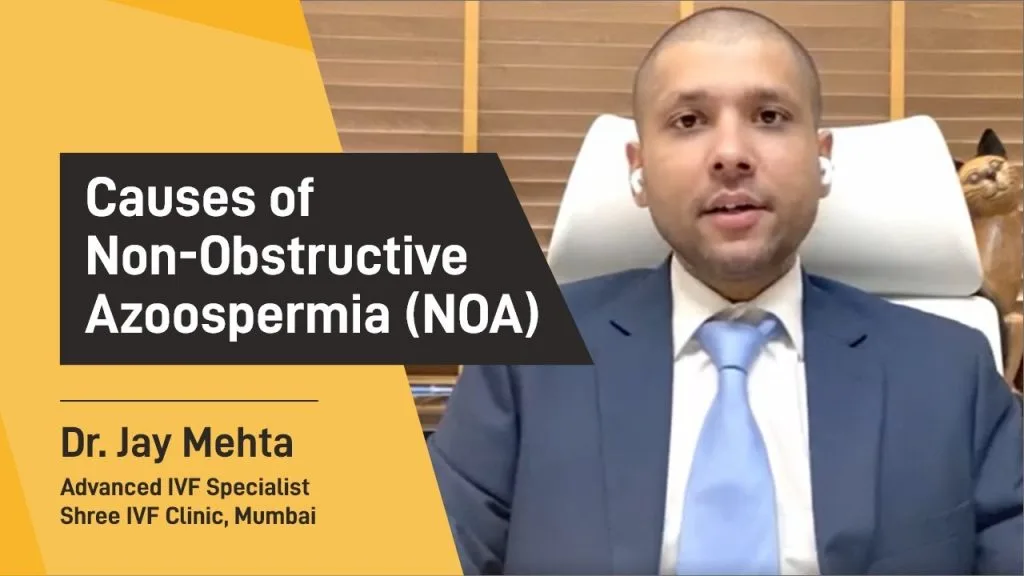Jacob’s Syndrome: Exploring Its Effects on Fertility
UPDATED ON 03rd FEB. 2024
Jacob’s Syndrome, a lesser-known genetic condition is a rare issue when it comes to fertility issues. In this detailed exploration, we’ll uncover what Jacob’s Syndrome is, its effects, treatment options, and the importance of genetic screening, particularly for those looking to start a family.
AUTHOR
Dr Jay Mehta
Scientific Director & IVF Specialist with 10+ years of experience
TREATMENT
CONDITION
GET IN TOUCH ON
What is Jacob’s Syndrome?
Jacob’s Syndrome is a genetic anomaly characterized by an extra Y chromosome in males. Typically, males have a 46XY chromosome pattern, but in Jacob’s Syndrome, this pattern changes to 47XYY.
It’s not an inherited condition; rather, it arises spontaneously during the division of a paternal sperm cell. The condition can manifest as a result of an error in meiosis II, the stage of cell division where the number of chromosomes is halved.
Characteristics and Challenges of Jacob’s Syndrome
Jacob’s Syndrome (47, XYY syndrome) is a genetic condition that can often go unnoticed due to its subtle manifestations. Understanding its characteristics and the challenges it presents is essential, especially for men who may be living with this condition unknowingly.
Physical Characteristics
- Height and Appearance: Men with Jacob’s Syndrome are often taller than average. This heightened growth is one of the few physical indicators of the condition.
- Facial Hair: They might also exhibit denser or more robust facial hair growth, although this is not a definitive sign and varies from person to person.
- Normal Physical Development: Apart from these traits, physical development in individuals with Jacob’s Syndrome generally aligns with typical male growth patterns.
Challenges and Health Implications
- Fertility Issues: The most significant challenge of Jacob’s Syndrome surfaces in the context of fertility. Men with this syndrome often don’t realize they have it until they face difficulties in conceiving.
- Non-obstructive Azoospermia: One of the key fertility challenges is non-obstructive azoospermia, where the semen contains no sperm despite normal testes size and function.
- Delayed Diagnosis: Since the syndrome is not easily detectable through physical traits alone, many men may receive a diagnosis later in life, often during fertility assessments.
Fertility Issues
The real challenge of Jacob’s Syndrome lies in its impact on fertility. Despite having normal-sized testes and no outward signs of any genetic issues, these men might face a significant hurdle: non-obstructive azoospermia.
This means that despite everything looking normal, there’s no sperm in their semen. It’s a silent issue that often only comes to light when trying to start a family.
Fertility Treatment and Success Rates
For men grappling with Jacob’s Syndrome, there’s a beacon of hope in the field of fertility treatment. The chances of successfully retrieving sperm range from a promising 55 to 70%. This opens up a world of possibilities for couples dreaming of having a child.
The Role of Preimplantation Genetic Screening (PGS)
Once sperm is successfully retrieved and used to fertilize an egg, resulting in an embryo, the journey isn’t over.
Next comes a critical step: preimplantation genetic screening, or PGS. This isn’t just another test; it’s a window into the genetic health of the embryo. PGS sifts through the genetic information to ensure that the embryo is free from genetic abnormalities. It’s like a quality check, ensuring that only the healthiest embryos are considered for implantation.
Why PGS Matters?
In the context of Jacob’s Syndrome, PGS isn’t just a recommendation; it’s a necessity. It offers peace of mind, ensuring that the potential genetic implications of Jacob’s Syndrome aren’t passed on to the next generation. It’s about giving that future child the best start in life, genetically speaking.

4,790+
379K+
” Every individual and couple’s journey is unique, and
finding the right solutions tailored to their specific
circumstances can make all the difference “
Real-World Success Stories
At Shree IVF Clinic, we have treated two cases of Jacob’s Syndrome successfully, retrieving quality sperm in both instances.
After undergoing genetic screening, one of the pregnancies resulted in a chromosomally normal embryo, highlighting the potential success of fertility treatments in such scenarios. The success rate of IVF in these cases is around 35 to 40%, a promising figure for couples facing fertility challenges due to Jacob’s Syndrome.
Klinefelter Syndrome: A Comparative Perspective
It’s important to distinguish Jacob’s Syndrome from Klinefelter Syndrome, another genetic condition where males have an extra X chromosome (47XXY instead of 47XYY). Klinefelter Syndrome is more common than Jacob’s Syndrome and presents its own set of reproductive challenges.
Key Considerations for Jacob’s Syndrome
Jacob’s Syndrome, particularly when it leads to non-obstructive azoospermia, brings with it certain crucial considerations. Understanding these can significantly aid in managing the condition and planning for a family.
Assessing Fertility Options
- High Probability of Viable Sperm: Despite the presence of azoospermia in Jacob’s Syndrome, the chances of finding viable sperm are quite high. This is a game-changer for natural conception, offering a beacon of hope to couples.
- Advanced Fertility Treatments: Leveraging advanced fertility treatments can be a key strategy. Technologies like IVF (In Vitro Fertilization) or ICSI (Intracytoplasmic Sperm Injection) can be employed effectively in such scenarios.
- Sperm Retrieval Techniques: Techniques like TESE (Testicular Sperm Extraction) or Micro-TESE can be used for sperm retrieval. These methods involve directly extracting sperm from the testicular tissue.
Prioritizing Genetic Counseling
- Understanding Genetic Implications: Genetic counseling is crucial for couples where the male partner has Jacob’s Syndrome. It helps in understanding the genetic implications and potential risks for offspring.
- Planning for Family: Counseling can aid in making informed decisions about family planning and the associated risks, ensuring couples are prepared and have realistic expectations.
Regular Health Check-ups
- Monitoring Hormonal Levels: Regular monitoring of hormonal levels is important. Although Jacob’s Syndrome is associated with high viable sperm retrieval rates, hormonal imbalances could still impact fertility.
- Overall Health Assessment: Regular health assessments can help in identifying and managing any underlying health issues that might affect fertility.
Wrapping Up
Jacob’s Syndrome, while not widely known, can significantly impact male fertility. However, with advancements in medical science, successful sperm retrieval and IVF treatments offer hope to those affected.
The key to navigating this condition lies in early diagnosis, understanding the genetic implications, and opting for comprehensive fertility treatments, including necessary genetic screenings.
For couples struggling with this condition, the journey to parenthood might be challenging, but it’s one that comes with a real possibility of success, backed by medical expertise and personalized care.
AUTHOR
Dr Jay Mehta
Scientific Director & IVF Specialist with 10+ years of experience
CONDITION
CALL US 24/7 FOR ANY HELP
GET IN TOUCH ON
Share Article on
Recommended Reading
Does Azoospermia Surgery Affect Sex Life?
Will azoospermia surgery change your sex life? In most cases, no. Understand the benefits of the procedure and how it can help restore fertility
Causes and Treatment of Non-Obstructive Azoospermia
Nonobstructive Azoospermia means no sperm in the ejaculate. It can be caused by genetics, hormones, testicular failure, or ejaculation issues
What is the procedure of MICRO TESE & how it works?
MicroTESE is a sperm retrieval surgery for men with Non-Obstructive Azoospermia, increasing their chances of conception through IVF or ICSI




